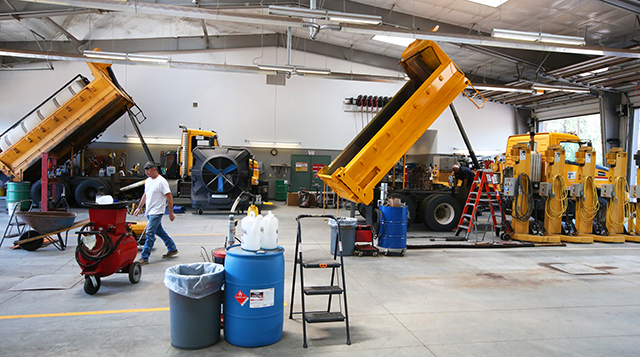Can’t pay the rent? How about a high-interest loan
Published 12:00 am Sunday, February 3, 2019

- Ablestock
As soaring prices leave many Bay Area residents struggling to pay rent, one startup is offering a controversial option for tenants in a bind — finance your rent with a high-interest loan.
Santa Monica, California-based Domuso allows some local renters to take out six or 12-month loans at an average annual interest rate of 27 percent to avoid paying late fees to their landlords or risk losing their homes.
Trending
The service is for tenants unable to cover one-time move-in expenses like security deposits and first and last month’s rent, or who fall behind on a monthly rent payment because of an unexpected sickness, layoff, or other financial emergency.
“There’s a very high percentage of people that are paycheck-to-paycheck, and there’s very little room when it comes to bumps in that financial road,” said Michael Lightfoot, co-founder and COO of Domuso.
Domuso’s loan model makes some experts uncomfortable. Financing rental payments like a car or a house, especially with a 27 percent interest rate — higher than the national credit card average of 17.5 percent — could plunge a tenant into a deep hole of debt.
“It seems like another predatory scam, and a distraction from the real problem of obscene rents,” said Kristi Laughlin, senior campaign director for the East Bay Alliance for a Sustainable Economy.
Lightfoot maintains his loans help renters.
“We have no intent of going down a path of payday lending, or anything in that regard,” he said.
Trending
Domuso partners with companies that manage large, multifamily buildings in California, Arizona, Utah and Colorado.
Once a deal is reached, tenants of those buildings must use the Domuso platform to pay their rent. Most options come with a “convenience fee,” which varies depending on the property and type of transaction.
Domuso — which got its name from the Latin root “domus,” meaning home — began offering loans for rent payments in Southern California two years ago, and expanded the service to Northern California about six months ago.
The company offers the option to a few thousand households in Fremont, Monterey and Sacramento, with plans to expand.
Domuso currently accepts about 30 percent of tenants who apply for a loan, rejecting those who don’t pass a credit check. Lightfoot hopes to extend services to renters with poorer credit, without adding huge increases to the company’s interest rates.
Domuso interest rates fluctuate depending on the borrower’s credit, and can go as low as 18 percent in California. The interest rate is an annual figure, so renters who pay off their loans quickly pay less, Lightfoot said.
Serena Laws, a political science professor at Trinity College who studies bankruptcy and debt, pointed to Domuso’s high interest rate as a red flag as troubling.
Nationally, the average credit card interest rate is 17.51 percent, according to CreditCards.com. Domuso says its average rate is higher because its borrowers tend to have poorer credit than the national average.
Stanford finance professor Jonathan Berk said the Domuso platform seems like a good thing. The reason is simple: “If you have the loan, you can stay in your house,” he said.
Berk compared the Domuso loans to payday advances — which typically charge high interest rates and get criticized as predatory — though Lightfoot is quick to draw a line between his company and payday lenders.
“It’s too easy to look to the interest rates, which are enormously high, and say, ‘People are being ripped off,’” Berk said. But the data shows “people tend to use it in cases of emergency. So if they don’t use it, things can spiral out of control.”
Without high interest rates, such loans would not be profitable and would cease to exist, Berk said.
There are other local programs that offer emergency funds to renters without the pay-back requirement. Housing Trust Silicon Valley, for example, provides grants of up to $2,500 to cover the security deposit for a family moving into a new home.
Using credit for rental payments is not a new concept, Lightfoot said. Between 2 and 5 percent of residents pay rent using credit cards, according to Domuso’s data.
“This isn’t something that we’re trying to convince people to do,” Lightfoot said. “It’s something they’re already doing. We’re just giving them a safe alternative that is digital.”
Most credit card companies charge transaction fees, which landlords often pass on to tenants, Lightfoot said. Other landlords don’t accept credit cards at all.








